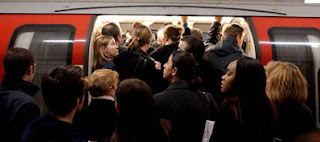Published with Blogger-droid v1.6.8
Also for sale is his beautiful old stone farmhouse in Provence with its 17 hectares overlooking the arrière-pays, on the market for £613,000. Already gone is his collection of six gliders valued at £350,000, and a luxury Audi A8, worth around £44,000.
Mr Rabeder has also sold the interior furnishings and accessories business – from vases to artificial flowers – that made his fortune.
"My idea is to have nothing left. Absolutely nothing," he told The Daily Telegraph. "Money is counterproductive – it prevents happiness to come."
Instead, he will move out of his luxury Alpine retreat into a small wooden hut in the mountains or a simple bedsit in Innsbruck.
His entire proceeds are going to charities he set up in Central and Latin America, but he will not even take a salary from these.
"For a long time I believed that more wealth and luxury automatically meant more happiness," he said. "I come from a very poor family where the rules were to work more to achieve more material things, and I applied this for many years," said Mr Rabeder.
But over time, he had another, conflicting feeling.
"More and more I heard the words: 'Stop what you are doing now – all this luxury and consumerism – and start your real life'," he said. "I had the feeling I was working as a slave for things that I did not wish for or need.
I have the feeling that there are lot of people doing the same thing."
However, for many years he said he was simply not "brave" enough to give up all the trappings of his comfortable existence.
The tipping point came while he was on a three-week holiday with his wife to islands of Hawaii.
"It was the biggest shock in my life, when I realised how horrible, soulless and without feeling the five star lifestyle is," he said. "In those three weeks, we spent all the money you could possibly spend. But in all that time, we had the feeling we hadn't met a single real person – that we were all just actors. The staff played the role of being friendly and the guests played the role of being important and nobody was real."
He had similar feelings of guilt while on gliding trips in South America and Africa. "I increasingly got the sensation that there is a connection between our wealth and their poverty," he said.
Suddenly, he realised that "if I don't do it now I won't do it for the rest of my life".
Mr Rabeder decided to raffle his Alpine home, selling 21,999 lottery tickets priced at just £87 each. The Provence house in the village of Cruis is on sale at the local estate agent.
All the money will go into his microcredit charity, which offers small loans to Latin America and builds development aid strategies to self-employed people in El Salvador, Honduras, Bolivia, Peru, Argentina and Chile.
Since selling his belongings, Mr Rabeder said he felt "free, the opposite of heavy".
But he said he did not judge those who chose to keep their wealth. "I do not have the right to give any other person advice. I was just listening to the voice of my heart and soul."
"For a long time I believed that more wealth and luxury automatically meant more happiness," he said. "I come from a very poor family where the rules were to work more to achieve more material things, and I applied this for many years," said Mr Rabeder.
But over time, he had another, conflicting feeling.
"More and more I heard the words: 'Stop what you are doing now – all this luxury and consumerism – and start your real life'," he said. "I had the feeling I was working as a slave for things that I did not wish for or need.
I have the feeling that there are lot of people doing the same thing."
However, for many years he said he was simply not "brave" enough to give up all the trappings of his comfortable existence.
The tipping point came while he was on a three-week holiday with his wife to islands of Hawaii.
"It was the biggest shock in my life, when I realised how horrible, soulless and without feeling the five star lifestyle is," he said. "In those three weeks, we spent all the money you could possibly spend. But in all that time, we had the feeling we hadn't met a single real person – that we were all just actors. The staff played the role of being friendly and the guests played the role of being important and nobody was real."
He had similar feelings of guilt while on gliding trips in South America and Africa. "I increasingly got the sensation that there is a connection between our wealth and their poverty," he said.
Suddenly, he realised that "if I don't do it now I won't do it for the rest of my life".
Mr Rabeder decided to raffle his Alpine home, selling 21,999 lottery tickets priced at just £87 each. The Provence house in the village of Cruis is on sale at the local estate agent.
All the money will go into his microcredit charity, which offers small loans to Latin America and builds development aid strategies to self-employed people in El Salvador, Honduras, Bolivia, Peru, Argentina and Chile.
Since selling his belongings, Mr Rabeder said he felt "free, the opposite of heavy".
But he said he did not judge those who chose to keep their wealth. "I do not have the right to give any other person advice. I was just listening to the voice of my heart and soul."















